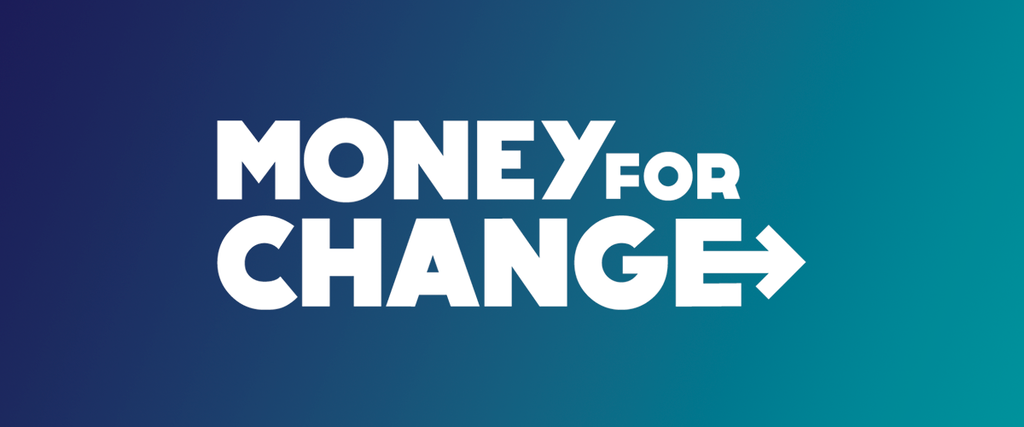
Money for Change campaign envisions an economic system that puts people and the planet’s well-being first.
By challenging the basic values of the current economic system, such as greed, competition, nature and human exploitation for the accumulation of wealth and power in the hands of the few, it aims to achieve change and truly transform the current financial and economic system.
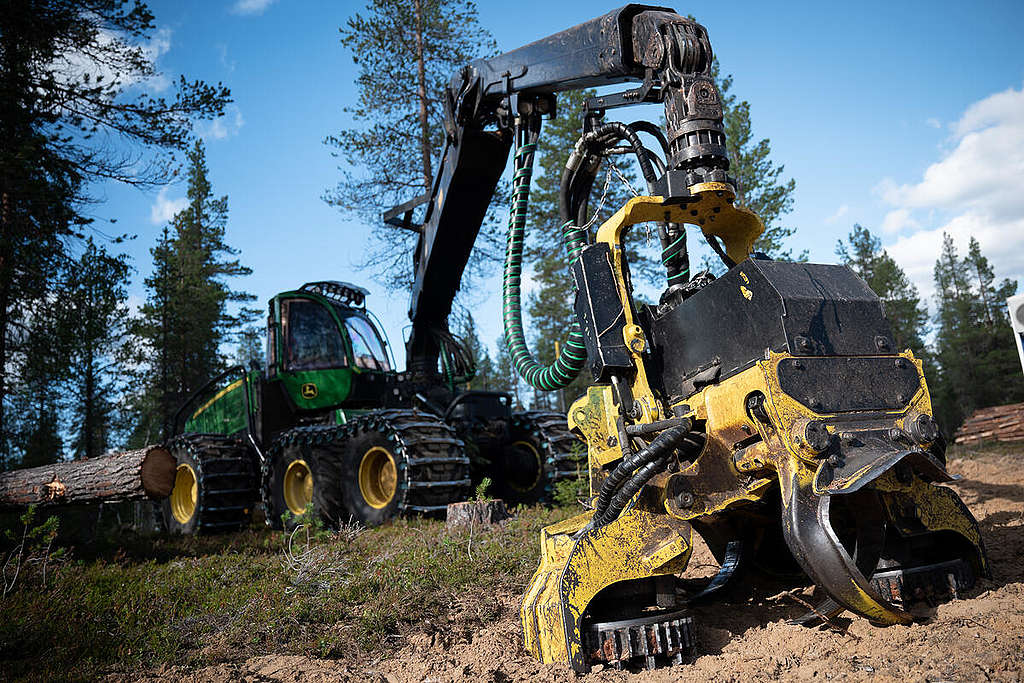
The money flowing to climate and nature destruction will be stopped through exposing greenwashing and through legal and regulatory intervention towards financial actors providing that money. We will prevent European finance from bankrolling global industries and actors engaged in nature and climate destruction, and we will dismantle the rigged financial system.
The numerous crises people face today are not by accident but rather by design. Competition is prioritised over social responsibility, and billionaires gain power and wealth by contributing to the biggest problems we face. The greediest among us have no incentive to change this status quo because they benefit from it.
We believe that we can achieve a halt to global biodiversity loss, nature destruction and climate catastrophe passing the tipping points that would make further human intervention irrelevant. For that reason, we want Europe to become the first continent to adopt climate neutrality and move towards an economic system that functions within planetary boundaries and puts people and the planet above profit and business as usual.
We require a financial and economic system that doesn’t lead us to extinction and secures a better future for everyone.

SystemShift Podcast
Discover the new SystemShift podcast, brought to you by Greenpeace Nordic, which explores the importance of economic systemic change, and shares the latest insights and solutions from leading economists, researchers, and innovators worldwide. If you’re interested in transitioning to a sustainable and equitable economic system that benefits all, this podcast is a must-listen.
Find us on popular platforms such as Spotify, Apple, Soundcloud, and YouTube, and start tuning in today.
Blogs
Discover the latest trends in economic and finance system change. Stay informed and transition to a more sustainable and equitable system.
ECB’s broken promise on bond decarbonisation creates climate gap
Europe is more advanced than other parts of the world when it comes to responding to what climate science tells us about the impact of rising temperatures on every aspect of our lives.
Switzerland is Breaking Planetary Boundaries Today, 13 May
The crisis we face requires us to address the systemic and planetary dimensions of the problem to ensure a secure and just future for everyone. Because right now, we are planetary boundaries breakers.
Love is… never having to say you’ve overshot!
Luxembourg’s demand for ecological resources and services exceeds what Earth can regenerate in a year – only Qatar does worse.
World Economic Forum: Davos exposes everything wrong with our economic system – time for change!
Many say the economic system is broken, but actually, it is working very well for the Davos elite, who have designed it to work exactly how it is.
With new coal uninsurable, insurers start to move on oil and gas
Insurance company restrictions on oil and gas are finally starting to catch up with those on coal, according to new data from the Insure Our Future campaign, co-published with Greenpeace.
How a lawsuit might correct EU Commission’s big mistake
When it comes to the tool aimed to differentiate what is a green investment from what is greenwashing, also known as taxonomy, the European Commission has bent over backwards to please the gas and nuclear lobbyists.
European economies – what’s your future?
It is time to engage our imaginations regarding economic system change! We need an economy that respects people and the planet above profit at any cost.
Reports
Stay informed with our latest research on finance and economic system change. Explore our reports on decarbonising the ECB, greening the Eurosystem, and more.
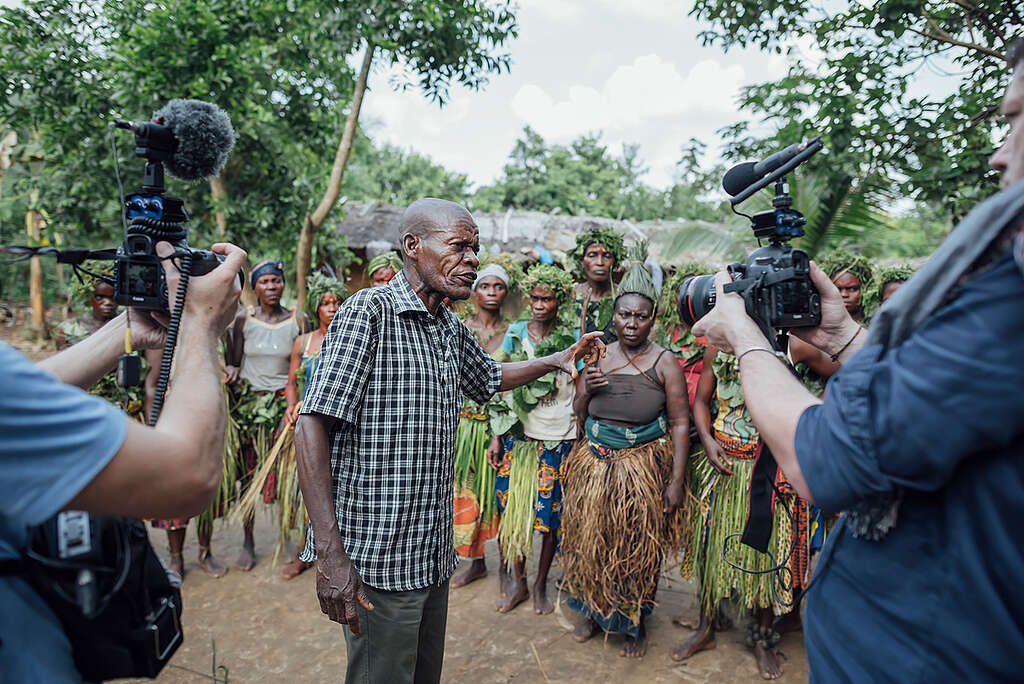
Blood Oil
Insuring the DRC oil exploration is underwriting the destruction of the Congo rainforest.
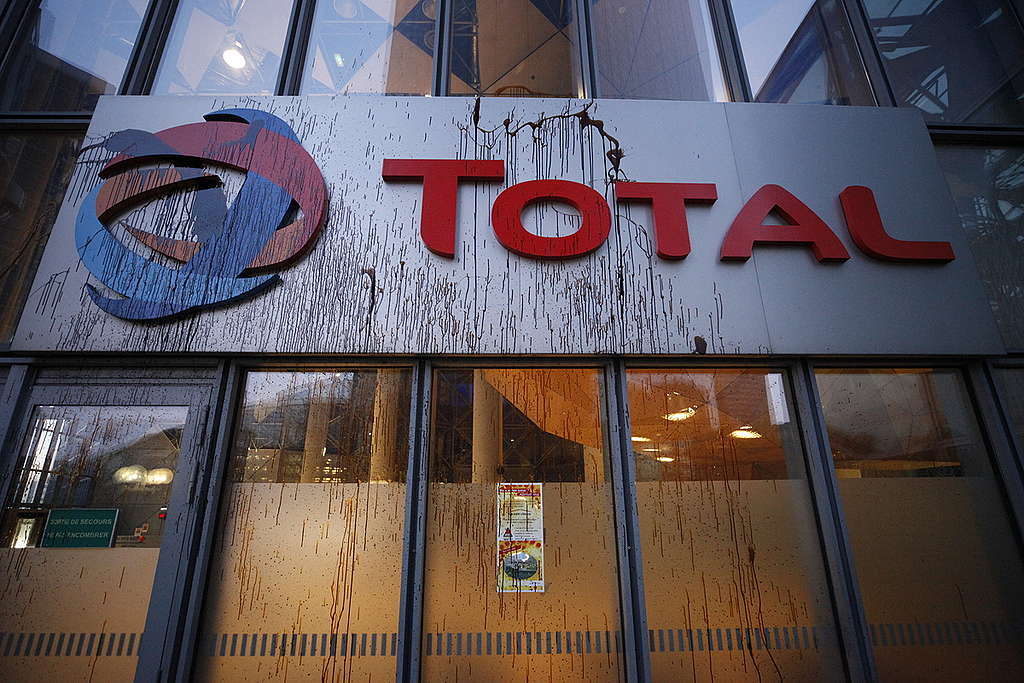
The Dirty Dozen: The Climate Greenwashing of 12 European Oil Companies
Twelve of Europe’s leading fossil fuel companies are deceiving the public about their willingness to curb their climate-damaging impact by transitioning to renewable energy sources, according to analysis commissioned by Greenpeace Central and Eastern Europe (CEE).
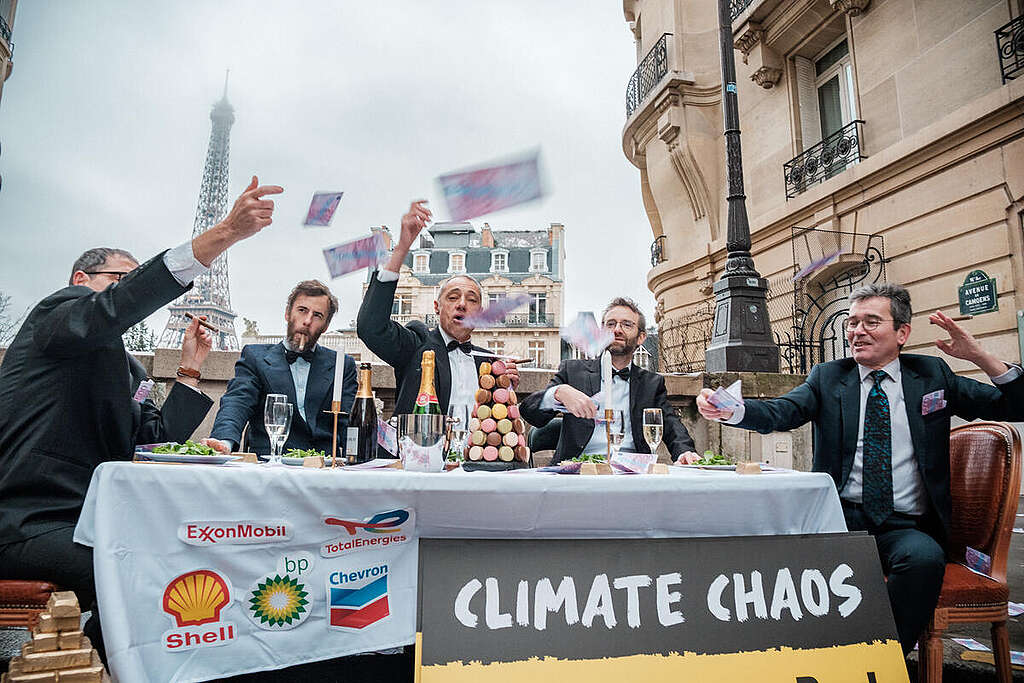
Broken promises: The ECB’s widening Paris gap
The European Central Bank’s Paris gap is rapidly widening despite initial ambitions. In this report, we focus on the ECB’s decarbonisation of corporate bond holdings and argue that the ECB can and should return to a more ambitious approach, while sticking to its plan to unwind its corporate bond portfolio.
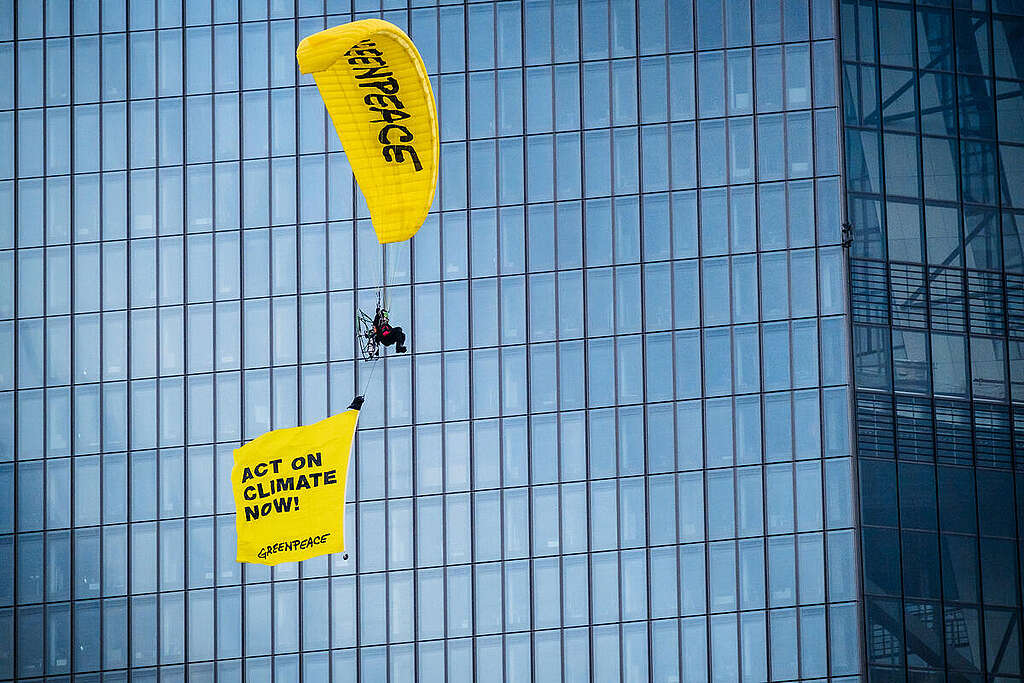
Decarbonising is Easy: Beyond Market Neutrality in the ECB’S Corporate QE
Exposing the significant carbon bias in the bank’s corporate bond purchasing program and proposing two low-carbon alternative scenarios. Published by Greenpeace and the New Economics Foundation (NEF) SOAS University of London, University of the West of England and the University of Greenwich.

Greening the Eurosystem Collateral Framework
Revealing ECB’s support to fossil fuel giants through accepted collateral worth €300 billion. Published by Greenpeace and the New Economics Foundation (NEF), SOAS University of London, University of the West of England and the University of Greenwich.
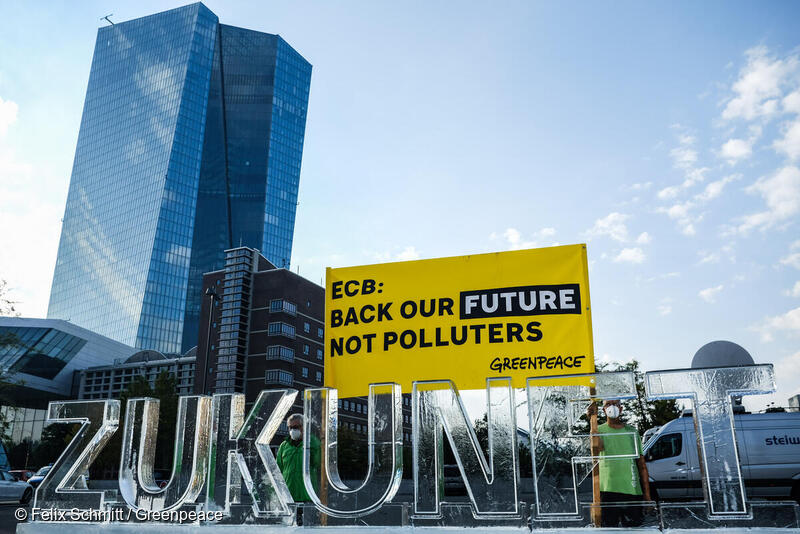
The Price Hesitation: How the Climate Crisis Threatens Price Stability
Shows that climate-related disasters significantly impact the price of various goods. Despite listing the maintenance of price stability as one of its core missions, the ECB has been slow to address the urgency and consequences of the climate crisis in its new monetary policy strategy published on 8 July.
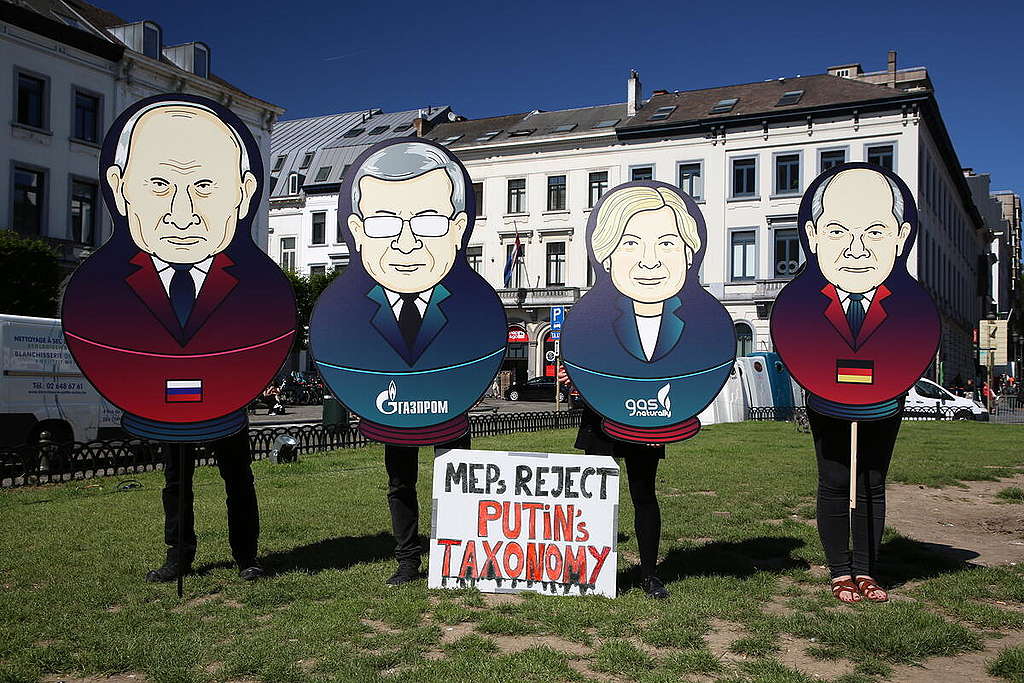
‘Russian Doll’ Gas and Nuclear Lobbying Threatens EU Energy Independence
How Russian companies are pushing for the EU taxonomy to include gas and nuclear energy, and why the European Parliament must stop new rules giving Putin exactly what he wants.
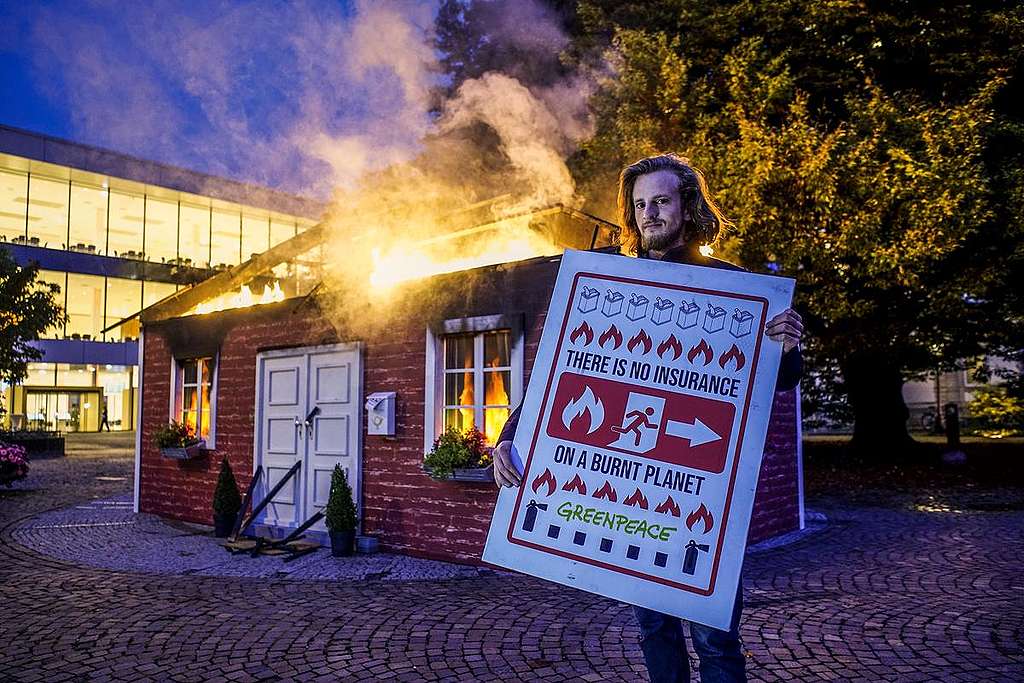
2022 Scorecard on Insurance, Fossil Fuels and Climate Change
Analyses 30 leading primary insurers and reinsurers, assessing their policies on insuring and investing in coal, oil and gas. The report highlights progress and loopholes, calls out leaders and laggards, and identifies challenges and opportunities for the year ahead. Published by the Insure Our Future campaign.





